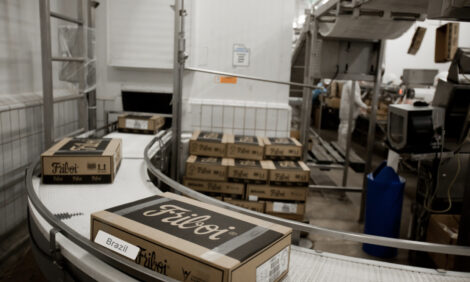



Uganda's Poultry Industry: Sure Bet for the Future?
UGANDA - 'Unknown part' or sure bet? Uganda has a suitable climate and is poised on the brink of developing its poultry industry to the next level, according to industry analyst, Dr John Strak.Dr John Strak, writes: "In my drawing room an antique map of Africa hangs on the wall. It was produced in 1805 and across most of the map it says 'Unknown parts'. I was working in a corner of those unknown parts recently – Uganda – and I can tell you that this particular part of the continent has much better maps these days. I can also say that there are some seriously good opportunities for poultry production in Uganda.
"Uganda is famous for its gorillas and chimpanzees, the explorers who finally named the source of the Nile in Uganda, and its coffee and tea production. It has a climate that will support two growing seasons for maize - and Ugandans are the happiest people in East Africa, according to the United Nation’s 2013 World Happiness Report.
"But why do I say that poultry meat production is a sure bet in Uganda?
"Three things support my claim – one already mentioned is the climate. Uganda is currently an exporter of surplus maize to its neighbours and its commercial farmers and agribusiness are, from my observations, getting their act together now. We will see increased yields, better quality and storage infrastructure, and an abundance of maize produced in Uganda in the next five years. Maize, of course, is often the principal feedstock for poultry meat.
"Secondly, look at what is happening to the demand for meat in Africa. In 2014, the FAO said: 'In 2005/07, the average African citizen consumed about 11 kilos of meat per year and 35 litres of milk. This is projected to progressively increase in the coming decades, up to 26 kilos and 64 litres in 2050, respectively.'
"From what I saw on my visit to Uganda, I think the rate of growth will be faster than this in the short term and the next 10 years will be a boom time for meat production in that part of the world. Poultry meat - with the right genetics and management - can make a huge contribution to this projected shift in demand.
"Thirdly, and I admit this is a subjective view, I think that the people in Uganda are clearly ready for a leap forward in infrastructure, farming practices and agribusiness management. The Chinese are already in Uganda (and most of Africa), of course, but there is plenty of room for other investors and partners – indeed the Ugandans would probably welcome some competition for their attention and investment opportunities. I felt very welcome when I was in Kampala – and safer than in some western cities.
"So, nothing to wait for, the spaces in the maps are now all filled in and there is a certain market waiting. If you are involved in the poultry meat supply chain, it’s time to go exploring the 'known parts'," added Dr Strak.









